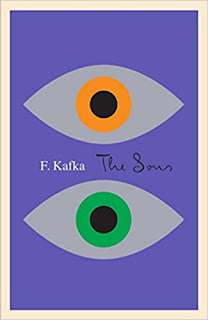Remembrance of Things Past
Marcel Proust
1913–1927
Around 4,215 pages
Despite being a cybersleuth, I was unable to locate a site that lists the Books in order of page counts. I would be curious to look at that, so if you know of a list like that, drop the link in the comments! If I had to guess, I was say this is the longest book on the list. Even Clarissa can't hold a candle to this chunkster.
I read this awhile ago with my mom. I think it's important to have another person as an anchor when embarking on an experience like this. You can share confusion, frustration, heartbreak, adoration. And eventually, smugness at having read seven volumes. Personally, I alternated between volumes and other books because, you know. You can only take so much.
It's challenging to give a plot summary of a work like this. Marcel is a simp before the term was coined. He reflects on his childhood and the meaning of time. He details his experience of adulthood in French high society. He occasionally messes in his pants when play wrestling with girls.
Okay, I might not be painting the most flattering portrait of Marcel. He is a rich character who obviously stands in for the author, he is not being particularly discreet on this point. So many closeted authors in this era. I get sad thinking how much happier they could have been if they had been born in this decade. Fully out and sick with COVID like the rest of us.
His descriptions are stunning, he engages all the senses beautifully. The most memorable description for people seems to be the madeleines (maybe they didn't make very far into the book? Totally understandable). But it is brilliant how he ties everything into memory and then makes you question why any of it matters.
Obviously an inadequate tribute to arguably the greatest novel ever written. From what I gather from Little Miss Sunshine, people spend their lives trying to explain Proust. I'll just say we are blessed to having writing like this in the world, and the rest of us will never be this talented.
Oh, and I should pick a favorite. If forced at cursor point like I am right now, I would have to say Swann's Way. I really enjoyed Charles Swann as a character. He was so different than Marcel and I enjoyed exploring the contrast.
RATING: *****
Interesting Facts:
Swann's Way was rejected by numerous publishers. So, any aspiring writers out there, keep on trucking!
Virginia Woolf wrote of the novel: "Oh if I could write like that!" You were doing just fine, honey.
Kazuo Ishiguro and Evelyn Waugh, however, both were critics of the novel. You can't please everybody, even if you are literally Proust.
UP NEXT: Steppenwolf by Herman Hesse. Herman, good to see you again. You're looking well.




